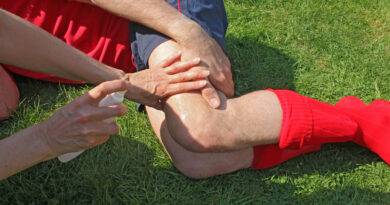Some Myths About Psoriasis You Need to Know
Psoriasis is a long-lasting autoimmune disease that affects about 4% of people worldwide. As a rule, psoriasis appears on the skin with red dry spots, papules, which, accumulate together to form plaques. And although the incidence does not depend on gender, according to statistics, the condition is somewhat more common in women.
Can you get psoriasis? Is it possible to cure it? Is it true that only adults can get it? In this article, we will look at seven myths about psoriasis, which you need to stop believing right now.
7 Myths About Psoriasis
Psoriasis may be contagious
No, psoriasis is not contagious and is not associated with hygiene. It is impossible for it to transfer from one person to another, even if you communicate very closely, constantly touch, or use the same towel and eat from the same plate.
This is a dermatological condition
More and more studies confirm that psoriasis is of an autoimmune nature. According to scientists, the disease is associated with impaired immune function, which causes the body to produce new cells faster than necessary. These cells, accumulating, turn into papules.
Psoriasis can be cured
Psoriasis is a chronic condition with which a person exists throughout life. However, patients with psoriasis have periods of remission, when outbreaks are minimal and do not cause discomfort, and crisis periods when psoriasis is especially dangerous.
Psoriasis cannot be cured
Despite the fact that psoriasis cannot be cured completely, the condition can and should be treated (adjusted). Methods of treatment have three main objectives: to stop the excessive production of cells, reduce inflammation and remove dead particles from the skin surface. Treatment may include topical, oral and injectables, and in some cases, light therapy.
These are just spots on the skin
Besides the fact that psoriasis appears on the skin in the form of red spots, these spots can itch and become inflamed. If you scratch the plaques too hard, they may crack and bleed, which increases the risk of infections entering the body. In addition, the obvious manifestations often cause anxiety and depression in patients with psoriasis, provoked by stigmatization. And some studies even associate this condition with suicidal thoughts.
Psoriasis is not associated with other diseases
According to the Mayo Clinic, people with psoriasis have a higher risk of developing type 2 diabetes, vision problems, and cardiovascular diseases. And according to the National Psoriasis Foundation in the USA, about 30% of patients with psoriasis later develop psoriatic arthritis.
Psoriasis can occur only in adults
Although psoriasis is indeed more common in adults, every year this disease is diagnosed in tens of thousands of children under the age of 10. The probability of psoriasis in a child is higher if one (10%) or both (50%) of his parent have this condition. Studies show that children’s psoriasis has the same risks as for adults, although plaque in children is usually less dry and painful.
There Is a Good Way to Relieve Psoriasis…
Today doctors offer patients with psoriasis topical preparations, as well as phototherapy, the use of which can relieve the condition of patients and improve the condition of the skin. A group of French scientists decided to check what else could alleviate the condition of patients with psoriasis.
They conducted an experiment in which, in addition to other volunteers, 3.5 thousand patients with psoriasis took part. The study lasted for two years: during this time, the participants kept a food diary, and also described their condition, indicating the severity of the disease. In addition, they provided information about their mental state, and body mass index and other health parameters.
Celine Phan, who led the study, explains that scientists analyzed the relationship between nutrition and the severity of psoriasis symptoms in study participants. In earlier experiments, it was shown that adherents of the Mediterranean diet, those in whose diet there were vegetables, fish, olive oil, severe cases of psoriasis were 22% less common than those who preferred a different approach to nutrition. However, such a diet did not help to prevent the development of the disease.
The authors are still not ready to say exactly how the Mediterranean diet affects the state of patients with psoriasis, but they believe that this type of nutrition reduces the overall level of inflammation in the body, which undoubtedly has a beneficial effect on health.
Obviously, more research is needed in this area, but doctors are ready to recommend a healthy diet to their patients, as eating vegetables, fruits, nuts and fish has a healthier effect than fast food or fried foods.




